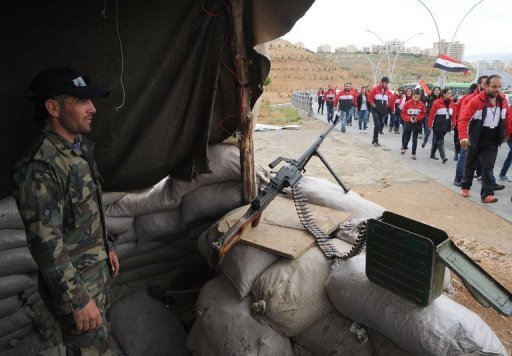The US is “deeply concerned” about the continuing hostility between rival leaders in Libya, as militias continue to manoeuvre for political and military gains, and the continued flow of weapons and other military equipment into the country in violation of the arms embargo.
These remarks came in a speech by First Adviser for Special Political Affairs at the US Mission to the UN Jeffrey DeLaurentis before the Security Council on Wednesday.
“We reiterate that people who obstruct or undermine the political process, provide support to armed groups, or illegally exploit crude oil or any other natural resources in Libya may be subject to UN sanctions,” DeLaurentis said.
The US diplomat added that the violence that broke out in Tripoli on Saturday and Sunday is “the result of the abject failure of Libyan political leaders to put the common good above their political interests and work for long-term peace and stability for the Libyan people.”
He also pointed out the continuation of “inflammatory rhetoric and sporadic incidents of violence between militias, foreign fighters, and foreign forces that create a tense and unsustainable situation.”
Furthermore, DeLaurentis referred to the events of last weekend in which escalating “inflammatory statements” and unilateral actions turned into “open violence”, with the latest incident claiming the lives of civilians and destroying several houses and buildings.
“The Libyan people are losing hope that their leaders will be able to put aside personal ambitions and reach an agreement on a constitutional framework for elections to allow Libyans their legitimate opportunities to peacefully choose their leaders,” he said.
“The continued instability is a reminder of the urgent need for the immediate appointment of a new special representative of the UN Secretary-General in Libya to resume mediation efforts with the united support of the international community, including members of the Security Council.”
“The leadership of the UN on the Libya file remains necessary to restore stability and achieve progress in the political process,” he added, stressing that the US will continue to fully support the efforts of the UN to secure a constitutional framework for the elections and a specific timetable for the election day.
He also pointed out that delegations from the Libyan House of Representatives and the Supreme Council of State have made important progress on election issues under the leadership of former Special Adviser Stefanie Williams.
Additionally, he called on Libyan Speaker of the House of Representatives Aguila Saleh and President of the Supreme Council of State Khaled Al-Mishri to continue their efforts by engaging constructively with the UN Support Mission in Libya and the special representative — once appointed — to finalise the eligibility conditions for candidates in the presidential elections and commit to the election calendar.
Moreover, he called on all parties in Libya to refrain from violence or actions that would lead to further violence, calling on “those who risk once again being drawn into violence to lay down their arms.”
He also urged “those who have encouraged violence from outside Libya through political, financial, and military support to stop their intervention and respect the arms embargo, stay away from the path of war, and work together for peace and stability.”


